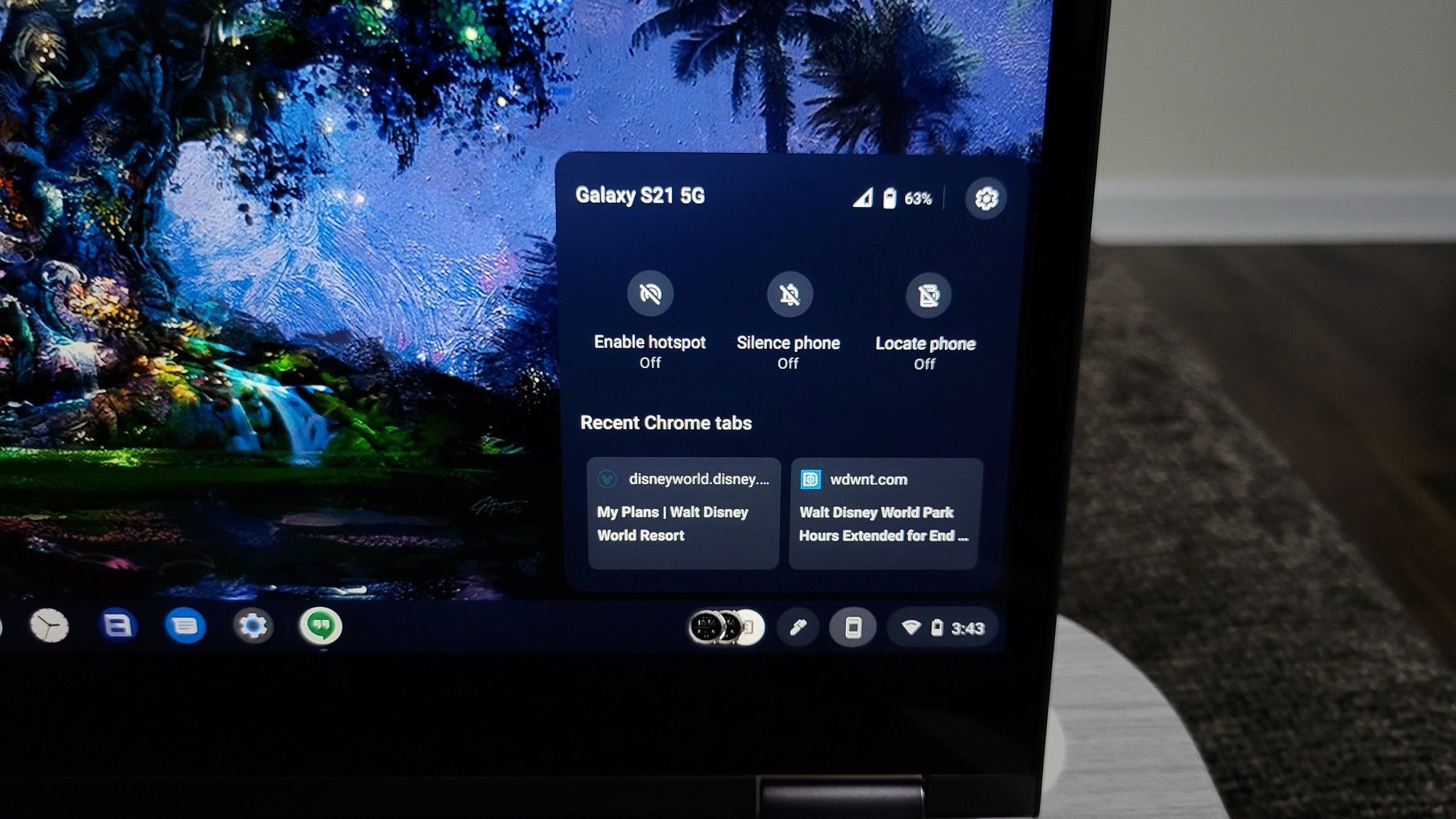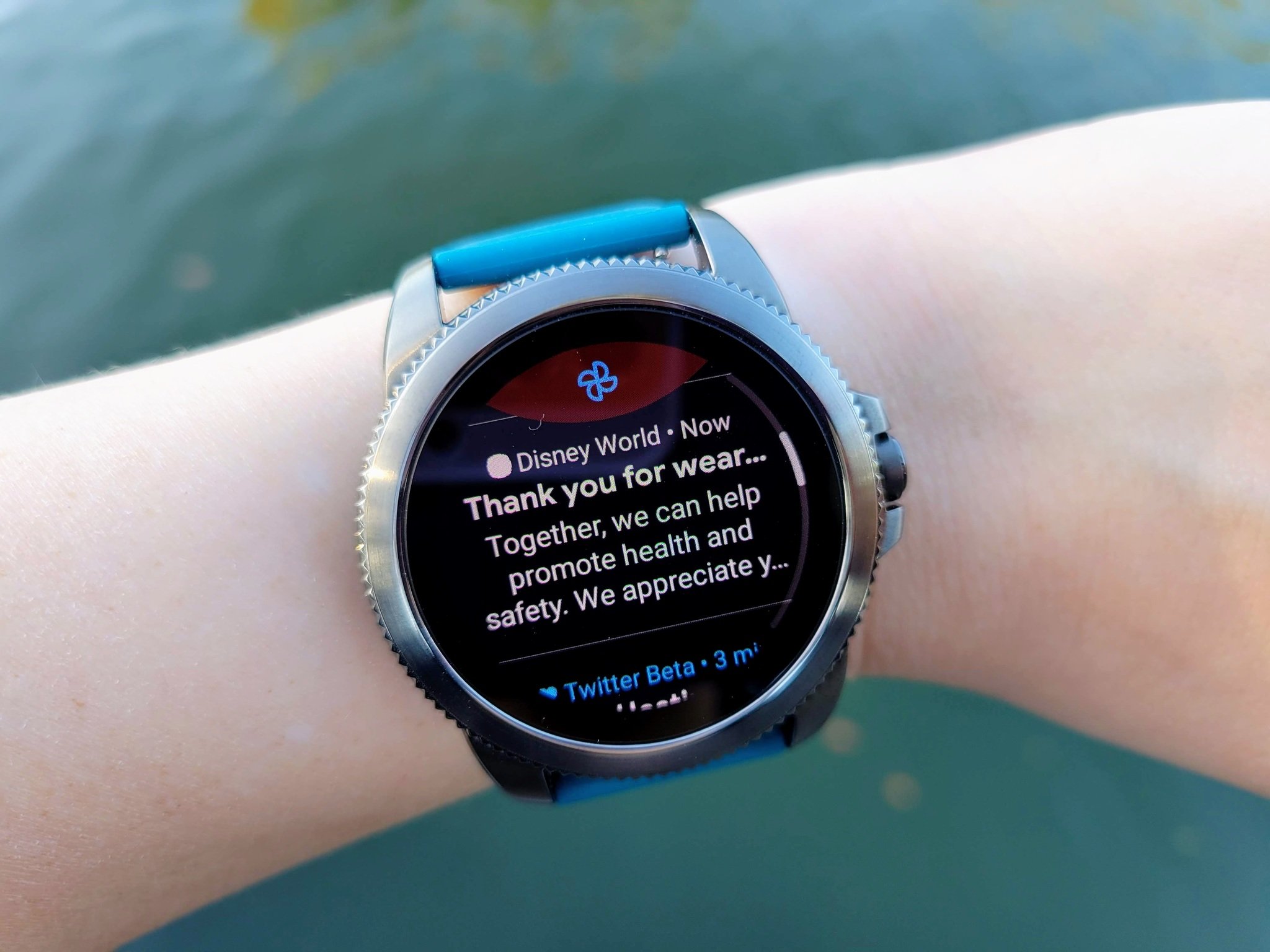Google has us use the cloud for everything, so why did it take this long for your phone to work better with your Chromebook?
Chromebooks are now 10 years old and Google recognized the milestone with an announcement about some features that a lot of us have been wanting for a while. Some, like an expanded clipboard that can hold more than one copied item at once, were nice surprises but there are two features that should have been part of Chrome OS since it launched: Phone Hub and Nearby Share.
In the end, the best features are the ones you'll enjoy using.
Yes, both are newish ideas "borrowed" from Microsoft Windows and Apple's macOS, but they are ideas that are so Google-like I can't believe they didn't originate in the Mountain View thinktank.
In case you aren't sure what these are and what they can do, they are ways to make your Chromebook communicate with your Android phone. Phone Hub for a Chromebook is a little different than how it's done between a Windows 10 PC and your Samsung phone, though. Besides mirroring notifications, it gives some control over features like your phone's hotspot, can find your phone like a Tile tag, lets you sync browser tabs between Chrome on Android and the Chromebook's browser. It's a nice feature and I'll bet it becomes quite popular.
Nearby Share is an Apple AirDrop clone. You select something to share, tap the share icon and you can choose any device in range to share it with as long as Nearby Share is enabled. Unfortunately, it only works with Android and now Chrome OS, so you'll still need to use the old-fashioned ways to share with iPhone users or any other laptop.
Both of these features have one thing in common — they could have existed for a long time using some Google computer in the cloud as the middleman. The mechanism for sharing notifications has been around since the first Android Wear watch back in 2014 and notifications are the one thing Wear OS gets right today. The first consumer Chromebook automatically synchronized with Google Drive on day one. Any Google Assistant / Google Home compatible device uses an automatic discovery option over a network, and Bluetooth file sharing has been a thing forever.
With all these mechanisms in place and some of the smartest developers and engineers ever working for Google, I can't understand why it took so long to make a Chromebook — Google's answer to desktop-class mobile computing — more attuned to your Android phone.
While Microsoft is busy trying new ideas, the only real mobile competition Google has is from Apple. Apple has implemented its own version of features that tie iPads, iPhones, and MacBooks together in a lot of similar ways, and people really do use those features. People using the best Android phones and Chromebooks or more budget-friendly Android phones and Chromebooks will use them, too. These are the kinds of things that increase productivity, but more importantly, increase the enjoyment of using the products by being easy and effective.
Google's products should work together this way. It's about time.
They are also the kinds of features that need to be filched from the competition in some form. Forget about any smartphone war that might exist between tech companies; Apple and Google both regularly "borrow" ideas from each other and oftentimes improve them. In the end, we benefit because they make the products we buy even better.
I know a software developer can't just snap their fingers and make things happen without a lot of work, and maybe it really took this long to figure things out. But I also know these are the sort of things people expected when they first heard about a new mobile-focused laptop from Google. I hope more and even better "mobile" features are in the works for Chromebooks and I hope we see them before the 20th anniversary of Chrome OS.
Source: androidcentral

